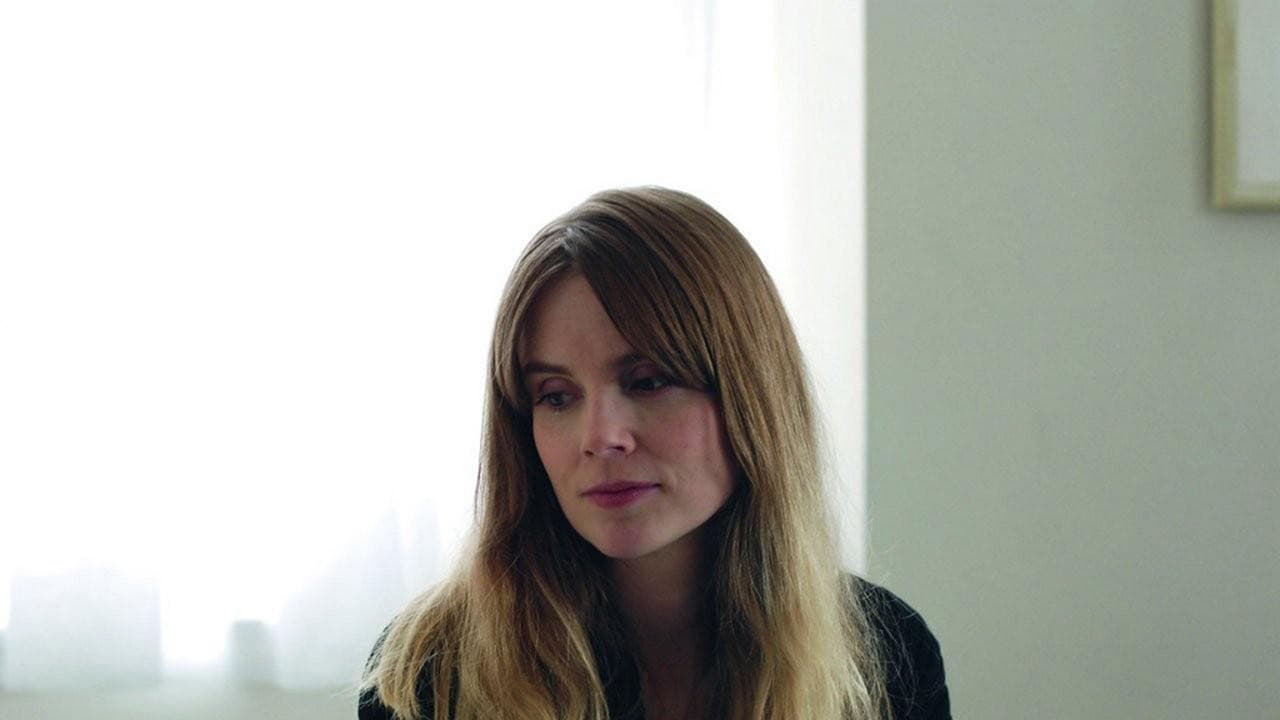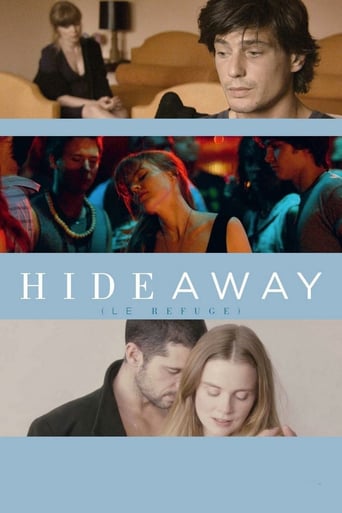



An absolute waste of money
A Brilliant Conflict
Too much about the plot just didn't add up, the writing was bad, some of the scenes were cringey and awkward,
View MoreIt is encouraging that the film ends so strongly.Otherwise, it wouldn't have been a particularly memorable film
View MoreLouis and Mousse are junkies. At the start of this tale, they are visited by a supplier, who brings them six grams of heroine that proves fatal.The heroin is lethal and Louis overdoses. Mousse, oblivious of his death, is found in bed by his mother, a rich lady who is renting the apartment, not suspecting her son is dead. Mousse is taken to a hospital to be detoxed, and in addition to that problem, it is found she is pregnant.At the funeral, Mousee, who has been released by then, goes back to the house, where her presence is not wanted. Paul, a brother of the dead young man, is the only one that shows any compassion toward Mousse. The mother of Louis has a serious talk with the girl. She confronts her on the pregnancy, something that Mousse assures her it belongs to Louis. The mother feels it is better if she aborts because of the dangers of passing the addiction to the baby, something that Mousse disregards, having a different idea of how to handle her imminent future.Mousse goes into a hideaway in a secluded part near a beach. Paul, on his way to Spain, stops at the house to spend a few days with Mousse. Paul, who is gay, finds a nice young man, Serge, who works in the area. The house where Mousse is staying belongs to a man who was her lover when she was sixteen years old. Now she takes her time to meditate on her future while living with limited funds and dependent on the methadone she must take in order to stay off heroine.Paul sees in Mousse a kindred spirit. He tries to get her to go out, something she has not done, preferring to stay home, away from people. Paul finally convinces her to go to the beach with him. There she is not shy in showing her pregnancy to anyone who looks. Even though Mousse knows what Paul is like, she regards him as an extension of her dead lover. One day, at an outdoor cafe, Mousse meets a man who has an interesting proposal for her. How about letting him take her to his room overlooking the water and make love to her. The incident goes badly when Mousse decides to sit with the man while he caresses her, but no actual intercourse.Like some of his previous films, director Francois Ozon sets most of "Hideway" on a beach. This film is not quite as intense as "Under the Sand", "See the Sea", or even "Swimming Pool", but it has lovely reflective moments in which Mousse must deal with her present reality. Having decided to have the child, she feels that little baby will be part of what she had with Louis, whom she sadly misses. The hideaway of the title refers probably to the reflection Mousse is experiencing, away from her chaotic life with Louis in Paris. The serenity of the location, plus her rapport with Paul, contribute to her mental well being. The only thing that does not ring true is the fact that Mousse is released from the hospital in no time, when in reality she needed to stay if she was to be cured of her drug addiction.Isabelle Carre makes a wonderful Mousse. She was pregnant at the time the film was made. Ms. Carre is the best thing in the film. Louis-Ronan Choisy is quite effective as Paul. The actor was making his film debut in this film and he is also credited with the incidental music heard in the picture. Melville Poupaud is seen briefly as Louis. Marie Riviere shows up briefly.
View MoreTwo drug addicts have a baby but the father dies from overdose. This is before the birth of the baby.The mother manages to get help from someone who provides her a house in a village. She meets a friend, and then later, a one-night stand lover.The mother abandons the baby to the friend. Hopefully this friend will be a good parent, so she can find herself (get high?).We can predict the baby will likely become a future drug addict, lacking in responsibility, like his parents.This movie shows why a nanny-state nation degrades over time - dependency and irresponsibility are fostered by the nanny-state.Many viewers may be emotionally moved by the sad state of affairs depicted in "Hideway", but I see a situation that could have been prevented by a culture that encouraged less dependency and more responsibility in its citizens.
View MoreFrançois Ozon ('Time to Leave', 'Swimming Pool', 'Under the Sand', '8 Women', 'Angel', etc) continues to bring to his films a sense of intimate relationships offered in a style of filmmaking that makes them personal and unique. He often uses the same actors for his films, a trait that makes his work seem truly ensemble in nature. HIDEAWAY (Le Refuge) is a story about the tapestry of love in all its forms and as written by both Ozon and Mathieu Hippeau it is a delicate view of the many facets of relationships. Mousse (Isabelle Carré) and Louis (Melvil Poupard) are young and wealthy and deeply in love, but they are addicted to drugs. In an extended almost wordless scene we watch them inject themselves with heroin in a luxurious Parisian apartment. Days of drug induced idyll are suddenly disrupted one morning when Louis' mother (Claire Vernet) arrives and discovers the couple: Louis is dead from an overdose but Mousse survived and is taken to a hospital where she finally awakens and is informed she is pregnant. After the funeral and burial of Louis, his mother convinces Mousse that Louis must have no heir and sends the confused Mousse her off to terminate the pregnancy. Louis brother Paul (Louis-Ronan Choisy) looks on, empathizing with Mousse. Some months pass and we find Mousse in a seaside country house where she is a recluse during the pregnancy she has decided to keep: Mousse is now controlling her addiction with Methadone. Her only outside contact is the grocer Serge (Pierre Louis-Calixte) who delivers her food until Paul stops by to pay a visit. Mousse allows Paul to stay in her hideaway and they become friends - Paul admits to Mousse that he is not Louis' blood brother but was rather adopted. Paul is gay and not a threat to the very pregnant Mousse. Paul goes into town, meets Serge, and a love affair ensues. The manner in which Mousse and Paul relate and together with Serge form a type of family leads to a rather surprising ending. How the shared relationship with Louis (Mousse's lover and source of her pregnancy and Paul's longtime admiration of his adopted brother) bonds the two provides a surprising but satisfying ending to the story. Isabelle Carré is radiant as the conflicted Mousse and both Poupard (despite the brevity of his role) and Choisy are excellent. This is quality, quiet, intimate filmmaking at its finest. Another little masterpiece from François Ozon. In French with English subtitles. Grady Harp
View MoreA film of a modest budget, a film made in the sunny Pays Basque and a film which captures a real pregnancy. As a matter of fact, The Refuge is "born" of this idea to film a pregnancy, and this movie benefits this particular occasion. But let's say it is not a typical idyllic portrayal of a pregnancy or of a pregnant woman. The only thing that may be idyllic, is the sun of the south of Europe. Otherwise, this is a capture of troubled lives and troubled personalities. The start of The Refuge is marked by a death by a drug overdose. Useful to say that the bunch of takes in beginning does not transmit even little of the richness of the future images of film. But who knows, maybe the cliché full drug taking scenes are there to underline the contrast. Anyways, the decease of the character of Louis, puts an ending to a love story - a very brief moment. Nevertheless, there is another story on the way and the principal figure of this film, Mousse, miraculously alive, carries it in her belly. And here begins the refuge where two characters, Paul and Mousse, try to figure out their lives. Paradoxically, these two lives are not so related as much as one can probably think, as they are put so close. Passing to the refuge in Basque Country, Ozon makes sure that the spectator draws a clear line in his mind by the change of tonalities – grim and gray for Paris and pastel and sunny for the south. Despite the posh ambiances of Paris surroundings and idyllic summer of southern Europe, the images speak generally of troubled lives. They portray a woman, struggling with the sudden solitude and a man, trying to find where exactly he belongs. The director puts on the screen a pregnancy that troubles the spectator more than the mother. Quite an ironic manipulation with those in front of screen – they experience the turbulence knowing that the heroine is still taking methadone and does not refuse alcohol or a night in club with music roaring loudly. But truly, it's all not about this. She is well aware of her pregnancy, but this is a different kind of pregnancy. It is not for the sake of it, it is for the sake of keeping the life. The big belly evokes the presence of Louis, who is gone and the presence of the baby, who hasn't yet arrived. It's nice to see, that director has found out, that pregnancy can be be showed as an instrument of portrayal or a link among other elements of the film. For example, it allows to grasp the personality of Mousse. It is like some sort of mourning which passes very silently, without hysterical and loud scenes. Like the way she is – very introvert and calm, keeping all the troubles inside; nevertheless the situation permits to see her desire for independence and stubborn nature. In addition, who would have thought, that giving different sexual orientations to the principal characters, permits so precisely to limit any kind of romance, even placing both in one, relatively isolated space and time. And even if Ozon lets happen something, it still is for the sake of the story, not for the comfort of spectators' expectations. Also, it has to be admitted, that Isabelle Carré looks beautiful and plays admirably the role of Mousse, in a way, living through two stories of one pregnancy.
View More